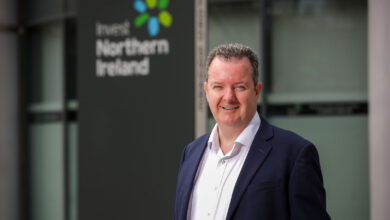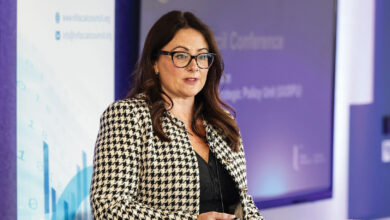Why do corporate social responsibility?
 A short summary of corporate social responsibility’s history, its pros and cons, and the duty of companies to think and act beyond their profit margin.
A short summary of corporate social responsibility’s history, its pros and cons, and the duty of companies to think and act beyond their profit margin.
The term ‘corporate social responsibility’ emerged in the 1960s (alongside the word stakeholder) but some businesses have a long history of acting with a social conscience. The construction of houses and schools by linen mill owners is one example in Northern Ireland’s experience.
American steel billionaire Andrew Carnegie had the radical dictum of spending the first third of one’s life “getting all the education one can”, the next third “making all the money one can”, and the last third “giving it all away for worthwhile causes”. His generous legacy includes New York’s Carnegie Hall, a university in Pittsburgh, four museums, three think tanks and over 2,500 public libraries (including several in Ireland).
At other times, political leaders have taken the lead and businesses have followed. The prohibition of slavery and child labour in the 19th century, for example, was led in Parliament by William Wilberforce and the Earl of Shaftesbury.
There is no central definition of CSR but, overall, its stated aim is to benefit the surrounding society or environment or both. By definition, it is the responsibility of business not government although legislation can obviously make companies change how they operate.
Rapidly growing economies, though, often ignored the environment or indeed the needs of society with corporate gain often being the sole priority. That attitude, in part, contributed to the early 20th century arms race and Wall Street Crash. Wallace B Donham, the Dean of Harvard Business School, said in 1929 that modern business was “new in its broadening scope, new in its social significance [yet] has not learned how to handle these changes, nor does it recognise the magnitude of its responsibilities for the future of civilisation.”
Many of the ethical debates have changed but Donham’s words still resonate, as businesses, government and societies wrestle with some unprecedented problems. Economic times are hard. Climate change’s impact is unmistakable, a growing population is using up more resources, and an increasingly individualistic society needs to care for its older members.
The concept is closely connected to sustainable development, although this is open to widely varying interpretations (as the Executive’s strategy suggests). The same has been said of the Big Society, David Cameron’s flagship idea.
In this report, agendaNi interviews NIO Minister Hugo Swire on what the Big Society means in practice for Northern Ireland, its aim of transferring power from the state to the citizen, and his response to right-wing and left-wing critics.
A range of views exist on CSR and companies’ attempts to ‘do good’. Unions, for example, see the value if jobs are created or staff can improve their skills but, along with environmentalists, tend to dismiss other forms of CSR as spin or ‘greenwash’.
Without substance, CSR can simply be spin but if it can achieve tangible results can make good news for a company and help to improve the quality of life for others in society.
Report sponsored by George Best Belfast City Airport





